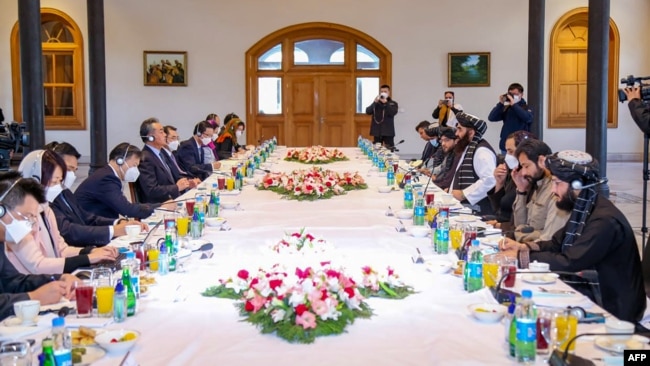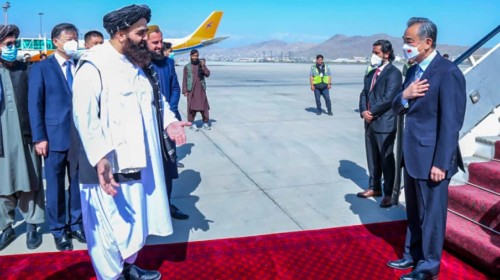In the two most recent U.S. presidential administrations, Central Asia has been caught up in Washington’s “strategic competition” with Beijing, experts say.
And, they add, that under the presumption that Central Asians share Washington’s concerns, the United States, highlighting human rights violations in China’s western region of Xinjiang, has insisted the countries in the region reevaluate their relations with Beijing, underplaying the issues that drive policies in Central Asia and China.
Jennifer Brick Murtazashvili, head of the Center for Governance and Markets at the University of Pittsburgh, said Beijing’s interests mainly reflect its own focus on security, especially in Afghanistan.
China “does not want terrorism or extremist activity to spill over from Afghanistan into China. It wants to prevent terrorism from destabilizing the region,” she said.
Murtazashvili told a recent hearing of the U.S.-China Economic and Security Review Commission (USCC) that China’s engagement with the Taliban should not be mistaken for support. She argued that Washington’s failure to achieve its political and military objectives in Afghanistan over 20 years “rattled its more powerful neighbors, especially China, Russia, Iran and Uzbekistan.”
“Rather than bringing stability, U.S. intervention in Afghanistan spawned the growth of terrorist groups including Islamic State-Khorasan (IS-K). China saw this growing instability in the north as creating space for terrorist groups such as the East Turkestan Islamic Movement (ETIM), an organization it accuses of fomenting separatism and terrorist attacks inside of China,” Murtazashvili told the commission, and it is that belief that drives Chinese policy and regional engagement.

While China sees the ETIM as a Uyghur terrorist organization, the U.S. does not, having revoked its designation as such in October 2020.
Murtazashvili does not see China rushing to invest in Afghanistan, adding that some of its business projects, including the Mes Aynak copper mine, “have been plagued by problems and have mostly been on hold for years.”
“First, China wants to make sure that Afghanistan has a functioning government,” she said.
For long-term investments, Beijing wants Taliban guarantees, not least securing its shared border, preventing violent extremists from entering its territory, and protecting its interests.
“This means that the Taliban must give up some members of ETIM to China … and demonstrate that they have a monopoly on violence in Afghanistan. This objective seems increasingly difficult at the current moment as the Taliban face increased threats from IS-K,” Murtazashvili said.
She emphasized differences between these two Islamist movements: the Taliban claims its focus is only Afghanistan; IS-Khorasan seeks to build a global caliphate.
While condemning China’s treatment of Uyghurs, Washington ironically shares some of China’s goals for fighting terrorism and violent extremism in Afghanistan, Murtazashvili said. Yet Chinese policies, including its treatment of Uyghurs, which the U.S. and rights groups have labeled as genocide, make it impossible for Washington to collaborate. Still, she said, Washington has options.






